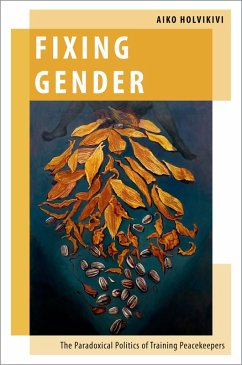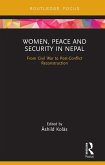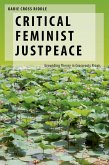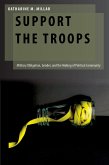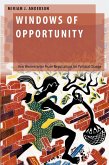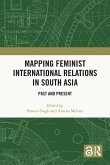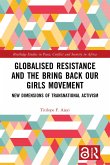Through an ethnographic study of gender training practices in peacekeeping institutions, Aiko Holvikivi examines how gender is conceptualised, taught, and learned in these settings, and with what political effects. She finds that this training constitutes a deeply ambivalent practice from the point of view of intersectional feminist political commitments. Drawing on queer and postcolonial feminist thought,
Fixing Gender examines the contradictory politics of gender training, arguing that we need to develop the analytical tools to grapple with paradoxical practices that are simultaneously good and bad feminist politics.
Dieser Download kann aus rechtlichen Gründen nur mit Rechnungsadresse in A, B, BG, CY, CZ, D, DK, EW, E, FIN, F, GR, HR, H, IRL, I, LT, L, LR, M, NL, PL, P, R, S, SLO, SK ausgeliefert werden.
Hinweis: Dieser Artikel kann nur an eine deutsche Lieferadresse ausgeliefert werden.

